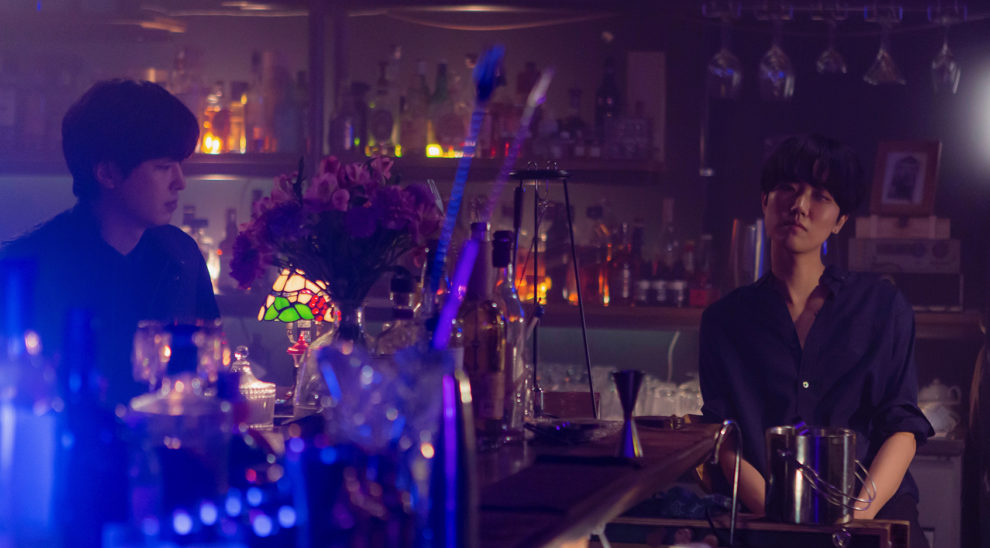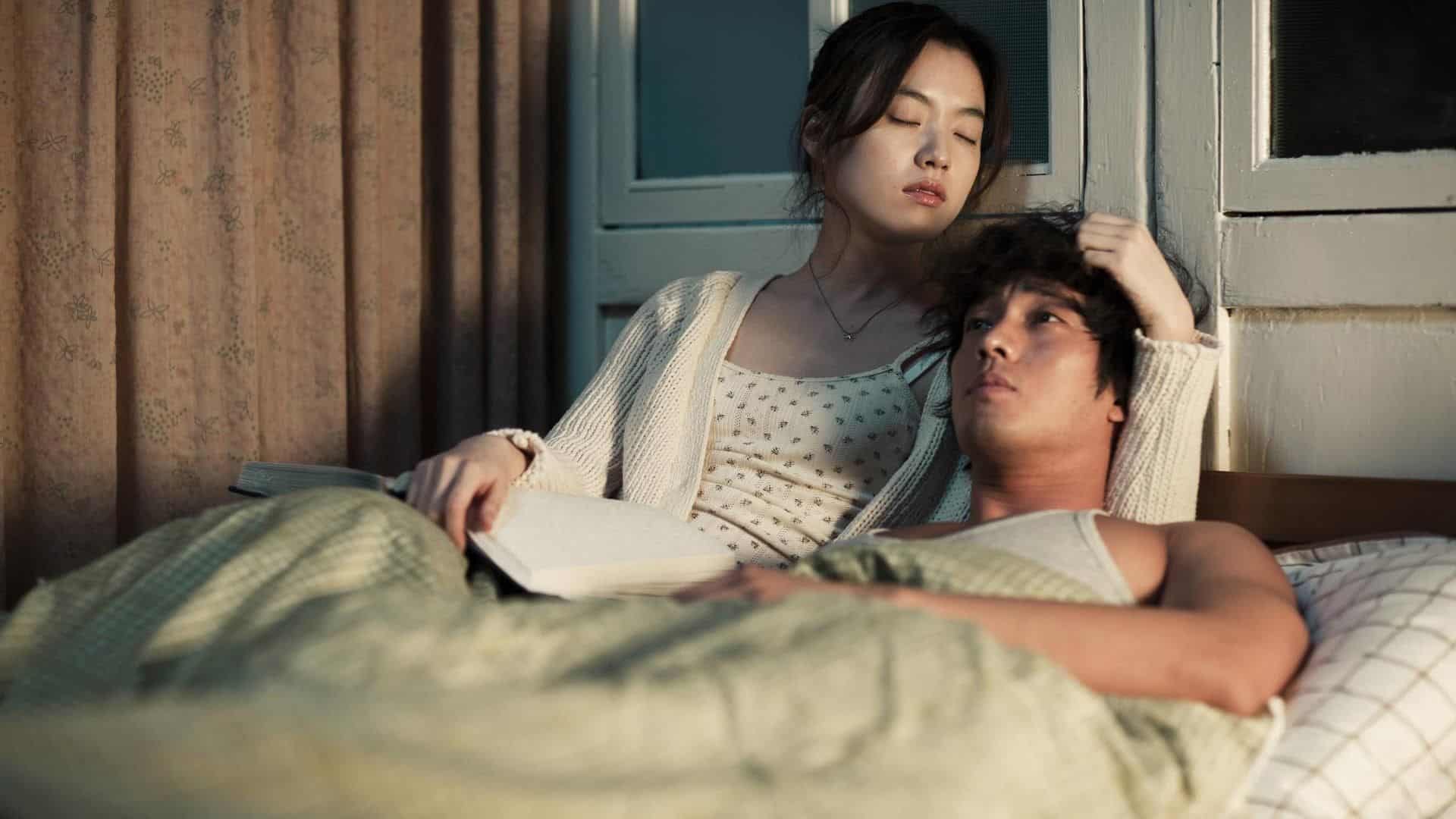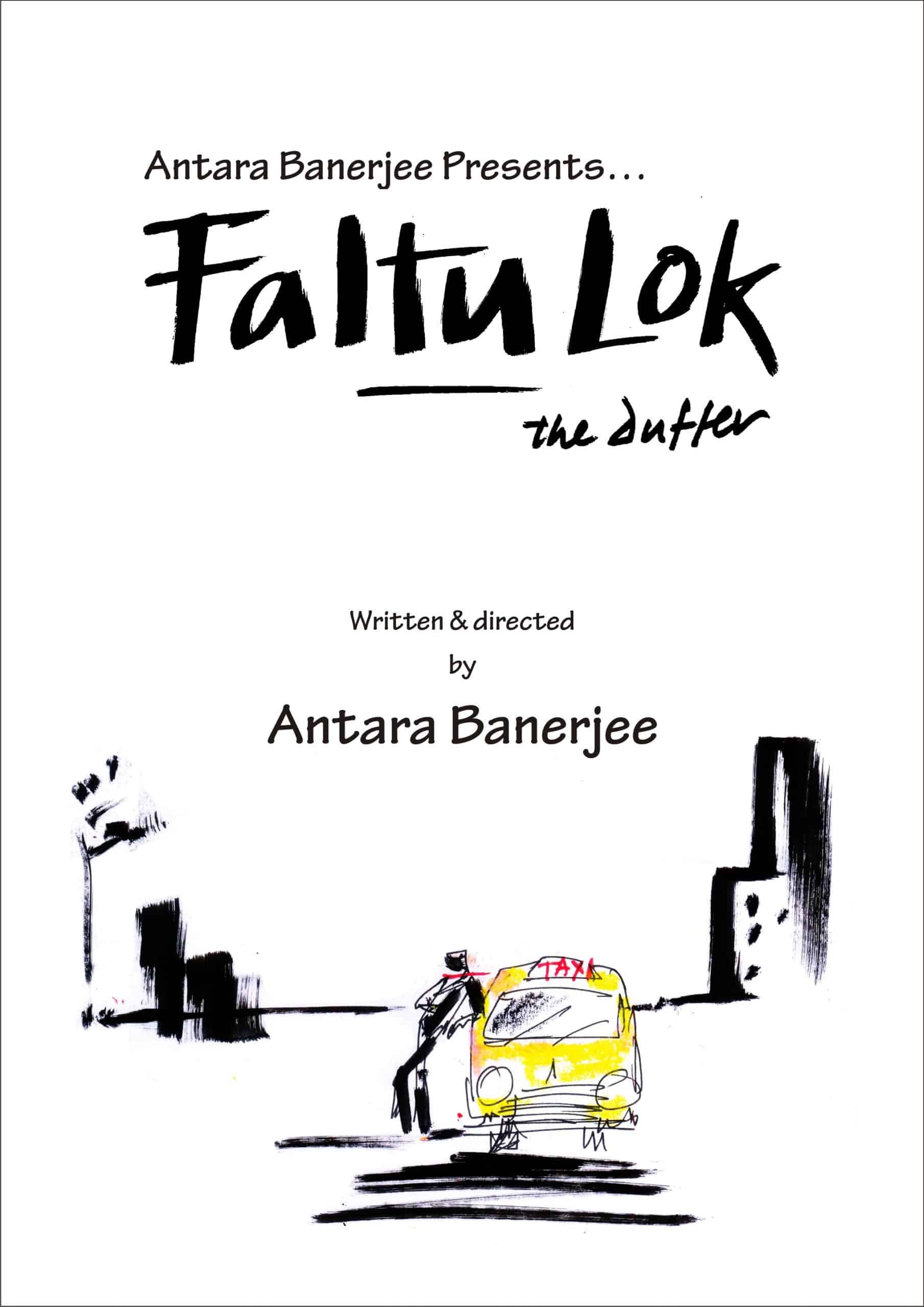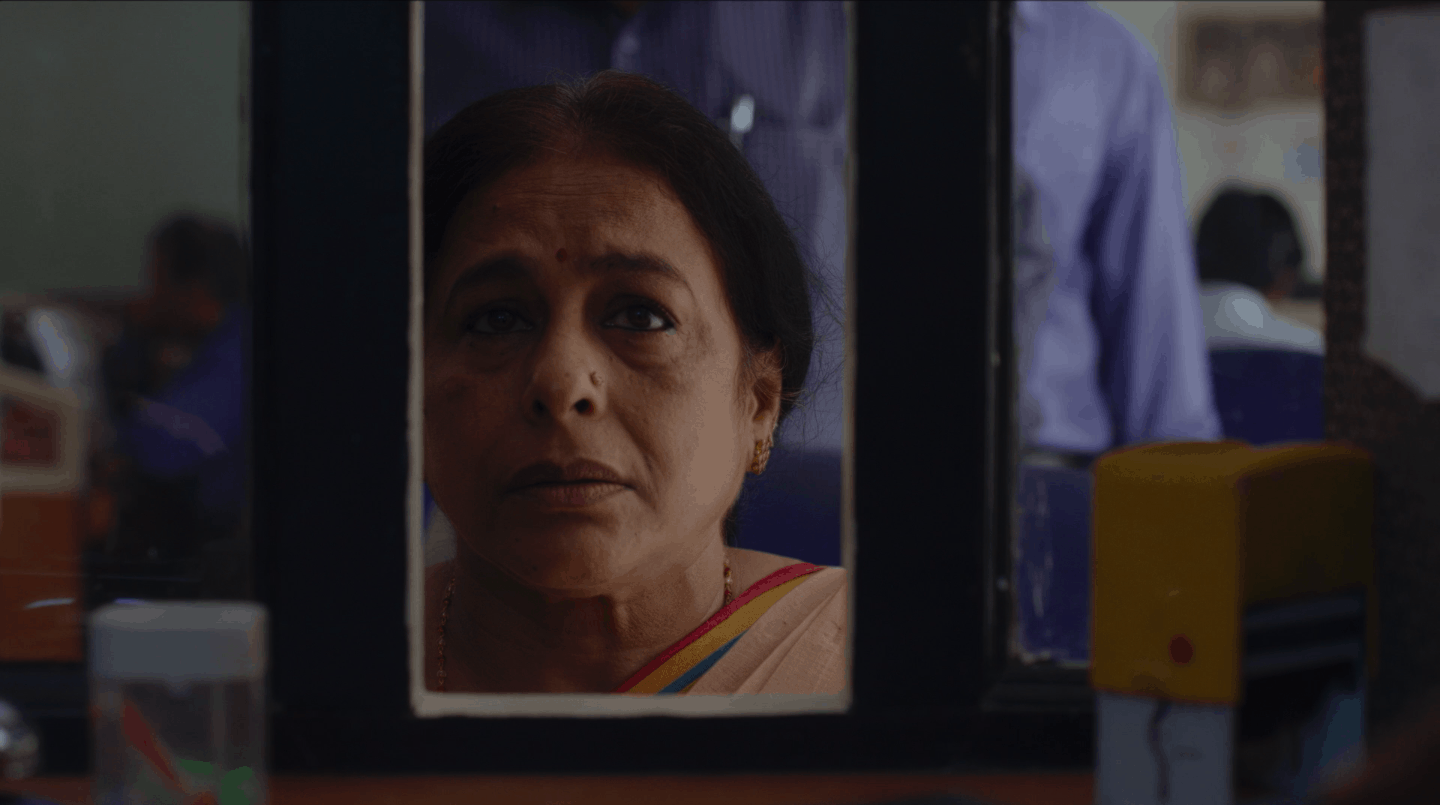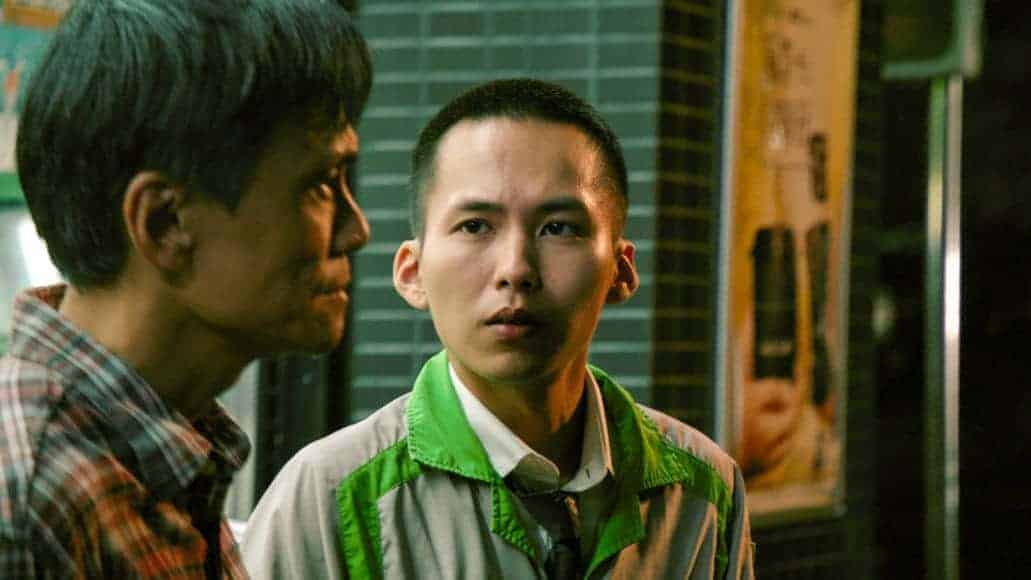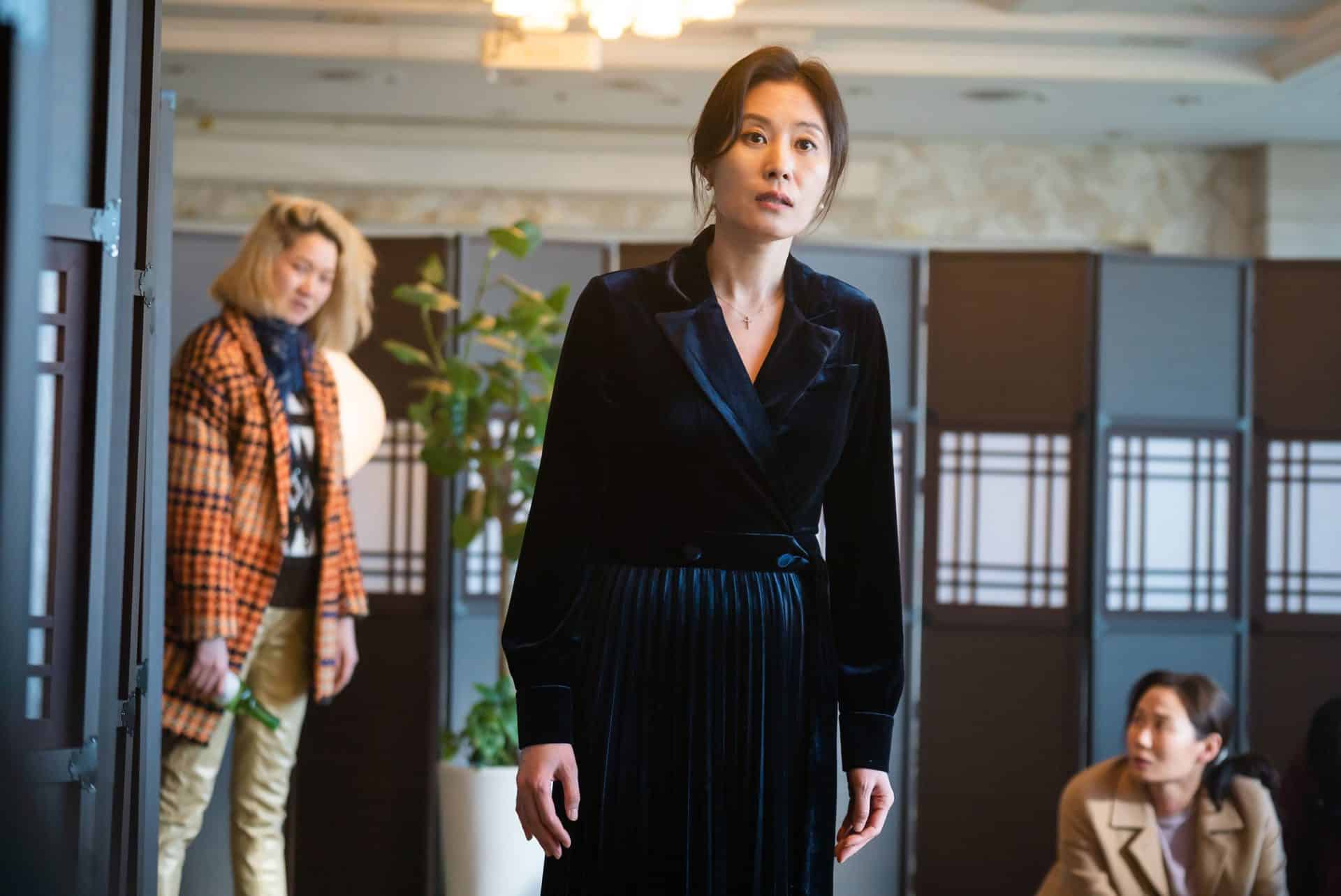Quite an unusual production, Kim Jong-kwan's fifth movie, after a hiatus of 3 years, is a distinctly art-house production that also functions though, as a road movie, an omnibus, and a melodrama.
“Shades of the Heart” is available from Echelon Studios

After getting divorced overseas, and still in pain from the death of his child, Chang-seok returns to Seoul after 7 years of absence, having a vague idea in his mind to write a new novel, about his own life. Upon his return he stumbles upon four people. In a subway station, he meets Mi-yeong who recollects their meeting and their past together. His editor, Yoo-jin, who was actually his “student” in the past, also reminisces about it, while smoking with him in a rural-like location. Next, he meets photographer Seong-ha, who is taking care of his ill wife, and his despair has led to some extreme thoughts. Lastly, Joo-eun, who tends a bar he is visiting, has lost her memories after a car accident. She buys him a drink in order to hear a memory of his, which is actually how she copes with what happened with her. Lastly, a random woman seems to appear out of nowhere a number of times throughout his “trip”.
Kim Jong-hwan creates an atmosphere that can only be described as dreamy, within which Chang-seok deals with his grief by listening to the drama of other people who seem to share similar experiences. As such, and despite the fact that all the characters in the story smile and seem cheerful in a way or the other, the premises of the movie are quite dramatic with grief being the main medium of all interactions. At the same time, the concept of past, and how it affects the present and future of people is also commented upon, with Kim playing with the idea through the appearance of the barwoman who has lost her memories completely. Lastly, a comment on how the literary and the overall art world works is also present here, again with a sense of pessimism, to a point at least, concluding the rather rich context of the movie.
Also of note here are the excellent visuals, in a quality of production that is rarely met in this type of art-house films. Kim Tae-su's cinematography captures the subway station, the various empty roads, the cafe and the bar with equal artistry, with his images, along with the lighting and the coloring, being an integral component of the aforementioned atmosphere. The approach finds its apogee in the bar, where the maximalism of the decor is combined impressively with the red hues that dominate the screen on times, and an overall sense that points towards a noir film. Won Chang-jae's editing results in an expectedly slow pace that also suits the general atmosphere, although some trimming on the extensive dialogues would definitely benefit the movie. On the other hand, at 83 minutes, “Shades of the Heart” does not overextend its welcome in any way.
Yeon Woo-jin as Chang-seok gives a rather measured performance, in perfect harmony with the overall narrative style, while highlighting his inner struggle and permeating melancholy eloquently. As the movie is based on dialogue, the cast essentially function as stage play actors, and the ones which seem to thrive in this approach are Kim Sang-ho as the photographer Seong-ha and Lee Joo-young-I as bartender Joo-eun, with their antithesis in demeanor working quite well for the movie.
“Shades of Heart” is a very convincing art-house film which manages to stand out mostly through its impressive visuals, stage-play aesthetics, and overall atmosphere.


